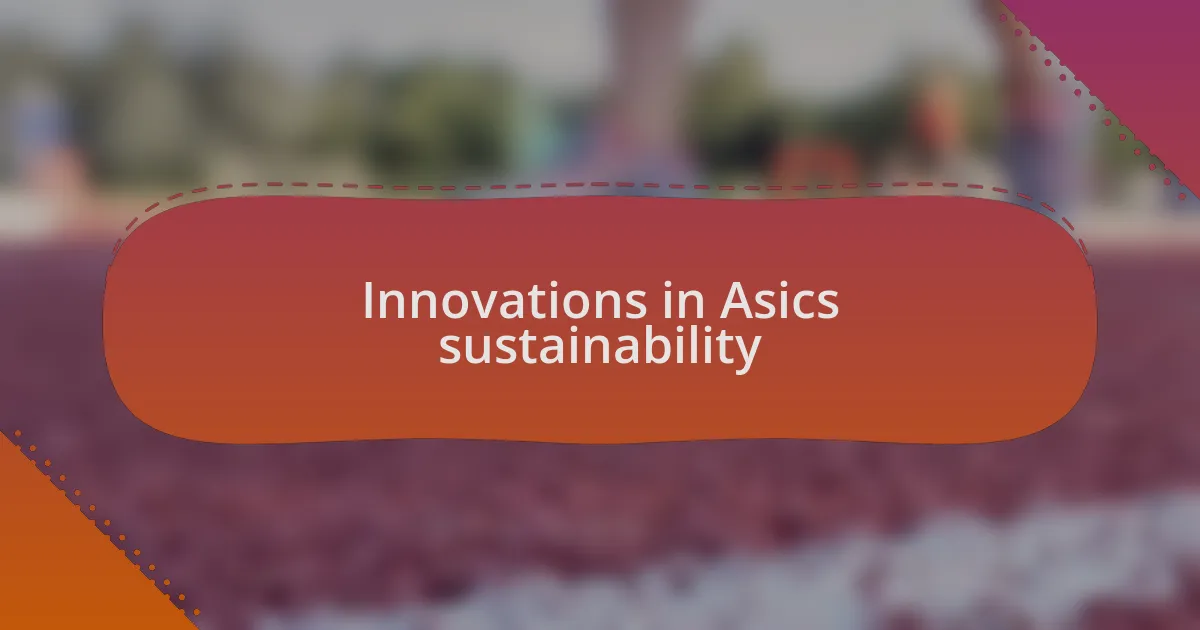Key takeaways:
- Asics is committed to sustainability through the ‘Asics Institute of Sport Science’ and aims for 100% sustainability by 2030.
- The brand utilizes recycled materials and develops innovations like FlyteFoam technology and biodegradable shoe components.
- Asics emphasizes transparency in their supply chain, allowing consumers to understand the sourcing and lifecycle of their products.

Asics commitment to sustainable practices
Asics is truly stepping up its game when it comes to sustainability. Their commitment is evident through initiatives like the ‘Asics Institute of Sport Science,’ which conducts research on how to minimize environmental impact while enhancing performance. I often wonder how often brands genuinely commit to such transparency and research, rather than just talking the talk.
The brand’s use of recycled materials in its products speaks volumes to their resolve. I remember trying on a pair of shoes that proudly boasted recycled polyester and felt a surge of pride knowing that my choice contributed to reducing plastic waste. Isn’t it amazing how our purchasing decisions can create a ripple effect?
Furthermore, Asics has set ambitious goals, such as achieving 100% sustainability in their operations by 2030. I find this especially inspiring. It’s not just about making greener shoes; it’s about leading a movement within the industry. How often do we see brands really aiming for the long haul? It makes me feel more connected to the brand and its mission.

Innovations in Asics sustainability
Asics is actively innovating with new materials designed to reduce their ecological footprint. For instance, their creation of the “FlyteFoam” technology, which incorporates recycled materials without sacrificing performance, has really caught my attention. I can’t help but think about the future of running shoes when brands like Asics prioritize sustainability in such advanced ways.
The company has also ventured into biodegradable shoe components, which I find incredibly fascinating. Imagine wearing a pair of shoes that not only perform well but also break down after their life cycle, leaving no harmful waste behind. I sometimes wonder how this could change our approach to shoe consumption—wouldn’t it be amazing if every brand adopted this mindset?
Moreover, Asics is embracing transparency in their supply chain, enabling consumers like us to see the journey our shoes take. This openness reassures me that I’m part of a sustainable choice. I think it’s pivotal for all brands to inspire trust through transparency. After all, isn’t knowing the story behind our products just as important as the products themselves?